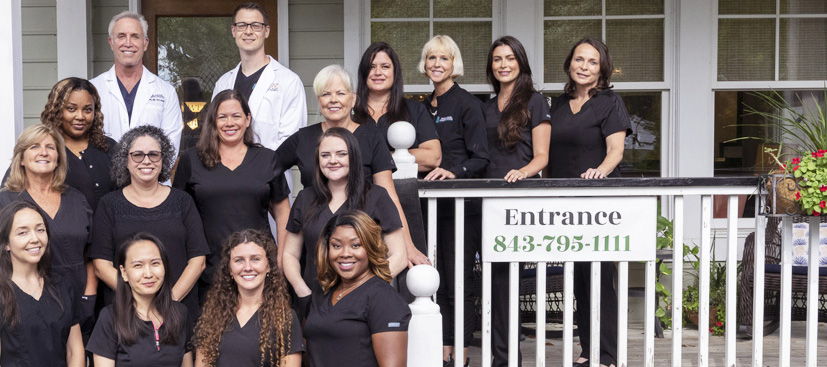Dentures

What Are Dentures?
Dentures are appliances inserted in the mouth to replace natural teeth and provide support for the cheeks and lips.
The teeth are made of plastic. Dentures can be fabricated to fit over endodontically treated teeth, and a complete denture may be attached to dental implants to allow for a more secure fit of the appliance.
Dentures, over a normal course of time, will wear and need to be replaced or relined in order to keep the jaw alignment normal. The alignment will slowly change as the bone and gum ridges recede or shrink due to the extraction of the teeth. Regular dental examinations are still important for the denture wearer, so that the oral tissues can be checked for disease or change.

Dentures in James Island
- A conventional denture is made after all teeth have been extracted and the tissues (gums) have healed.
- An immediate denture is fabricated and inserted immediately after the teeth are extracted and the tissues are allowed to heal under the denture.
- An upper denture has acrylic that covers the palate (roof of the mouth).
- A lower denture is shaped like a horseshoe to leave room for the tongue.
Caring for Dentures
- Only a dental professional is qualified to adjust the denture or partial
- Dentures should be brushed inside and outside daily with a soft, large nylon denture toothbrush with round-ended bristles
- Use denture creams instead of toothpaste, which are too abrasive and will scratch the denture. Rinse with cold water
- Dentures warp if placed in hot water
- Inspect the denture regularly for worn teeth
- Worn and stained dentures may be unattractive and cause the dentures to function poorly
- Be sure to visit our dental professional regularly
- Have loose dentures checked immediately, as they can cause friction and pressure on the gum tissues and bones
- When not in use, cover dentures with water or a denture-cleaning solution to prevent them from drying out
Take the Next Step
With so many denture options, one may be right for you. Contact our office today and schedule an appointment to discuss dentures as an option.
